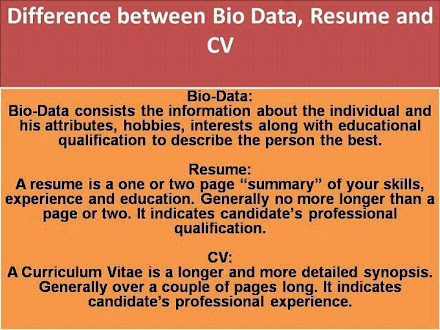What is Alzheimers Disease?
The most common form of dementing illness, Alzheimers Disease (AD) is a progressive, degenerative disease that attacks the brain, causing impaired memory, thinking and behavior. The person with AD may experience confusion, personality and behavior changes, impaired judgment, and difficulty finding words, finishing thoughts or following directions. It eventually leaves its victims incapable of caring for themselves.
What happens to the brain in Alzheimers Disease?
In AD The nerve cells in the part of the brain that controls memory, thinking, are damaged, interrupting the passage of messages between cells. The cells develop distinctive changes that are called neuritic plaques (clusters of degenerating nerve cell ends) and neurofibrillary tangles (masses of twisted filaments which accumulate in previously health nerve cells). The cortex (thinking center) of the brain shrinks (atrophies), The spaces in the center of the brain become enlarged, also reducing surface area in the brain.
What are the symptoms of Alzheimers Disease?
Alzheimers Disease is a dementing illness which leads to loss of intellectual capacity. Symptoms usually occur in older adults (although people in their 40s and 5Os may also be affected) and include loss of language skills such as trouble finding words, problems with abstract thinking, poor or decreased judgment, disorientation in place and time, changes in mood or behavior and changes in personality. The overall result is a noticeable decline in personal activities or work performance.
Who is affected by Alzheimers Disease?
Alzheimers Disease knows no social or economic boundaries and affects men and women almost equally. The disease strikes older persons more frequently, affecting approximately 10% of Americans over age 65 and 47% of those over age 85.
Is Alzheimers Disease hereditary?
There is a slightly increased risk that children, brothers, and sisters of patients with Alzheimers Disease will get it, but most cases are the only ones in a family. Some patients who develop the disease in middle age (called early onset) have a "familial" type more than one case in the family. It is important to note that AD can only be definitively diagnosed after death through autopsy of brain tissue. Thirty percent of autopsies turn up a different diagnosis. Families are encouraged to ask for an autopsy as a contribution to learning more about the genetics of AD.
Are there treatments available for Alzheimers Disease?
Presently, there is no definite cure or treatment for Alzheimers Disease. Unfortunately, there are many unscrupulous individuals who market so-called "cures." These treatments are often expensive and they dont cure AD. However, since senility is such a scary problem and because families are desperate to find help for loved ones, these bogus treatments continue to sell. Most of them have no scientific proof of effectiveness.
What is the scope of Alzheimers Disease?
Alzheimers afflicts approximately 4 million Americans and its estimated that one in three of us will face this disease in an older relative. More than 100,000 die annually, making Alzheimers Disease the fourth leading cause of death among adults. Half of all current nursing home patients are affected, making AD a costly public health and long term care problem. An estimated $80 billion is spent annually on the care of AD, including costs diagnosis, treatment, nursing home care, at-home care and lost wages. Alzheimers also affects the patients caregivers, who become the second victims. Persons with AD often require 24-hour care and supervision, most of which is provided in the home by family and friends. In addition to the tremendous stress of providing care, families also bear most of the financial burdens of the disease as well.
The most common form of dementing illness, Alzheimers Disease (AD) is a progressive, degenerative disease that attacks the brain, causing impaired memory, thinking and behavior. The person with AD may experience confusion, personality and behavior changes, impaired judgment, and difficulty finding words, finishing thoughts or following directions. It eventually leaves its victims incapable of caring for themselves.
What happens to the brain in Alzheimers Disease?
In AD The nerve cells in the part of the brain that controls memory, thinking, are damaged, interrupting the passage of messages between cells. The cells develop distinctive changes that are called neuritic plaques (clusters of degenerating nerve cell ends) and neurofibrillary tangles (masses of twisted filaments which accumulate in previously health nerve cells). The cortex (thinking center) of the brain shrinks (atrophies), The spaces in the center of the brain become enlarged, also reducing surface area in the brain.
What are the symptoms of Alzheimers Disease?
Alzheimers Disease is a dementing illness which leads to loss of intellectual capacity. Symptoms usually occur in older adults (although people in their 40s and 5Os may also be affected) and include loss of language skills such as trouble finding words, problems with abstract thinking, poor or decreased judgment, disorientation in place and time, changes in mood or behavior and changes in personality. The overall result is a noticeable decline in personal activities or work performance.
Who is affected by Alzheimers Disease?
Alzheimers Disease knows no social or economic boundaries and affects men and women almost equally. The disease strikes older persons more frequently, affecting approximately 10% of Americans over age 65 and 47% of those over age 85.
Is Alzheimers Disease hereditary?
There is a slightly increased risk that children, brothers, and sisters of patients with Alzheimers Disease will get it, but most cases are the only ones in a family. Some patients who develop the disease in middle age (called early onset) have a "familial" type more than one case in the family. It is important to note that AD can only be definitively diagnosed after death through autopsy of brain tissue. Thirty percent of autopsies turn up a different diagnosis. Families are encouraged to ask for an autopsy as a contribution to learning more about the genetics of AD.
Are there treatments available for Alzheimers Disease?
Presently, there is no definite cure or treatment for Alzheimers Disease. Unfortunately, there are many unscrupulous individuals who market so-called "cures." These treatments are often expensive and they dont cure AD. However, since senility is such a scary problem and because families are desperate to find help for loved ones, these bogus treatments continue to sell. Most of them have no scientific proof of effectiveness.
What is the scope of Alzheimers Disease?
Alzheimers afflicts approximately 4 million Americans and its estimated that one in three of us will face this disease in an older relative. More than 100,000 die annually, making Alzheimers Disease the fourth leading cause of death among adults. Half of all current nursing home patients are affected, making AD a costly public health and long term care problem. An estimated $80 billion is spent annually on the care of AD, including costs diagnosis, treatment, nursing home care, at-home care and lost wages. Alzheimers also affects the patients caregivers, who become the second victims. Persons with AD often require 24-hour care and supervision, most of which is provided in the home by family and friends. In addition to the tremendous stress of providing care, families also bear most of the financial burdens of the disease as well.







No comments:
Post a Comment